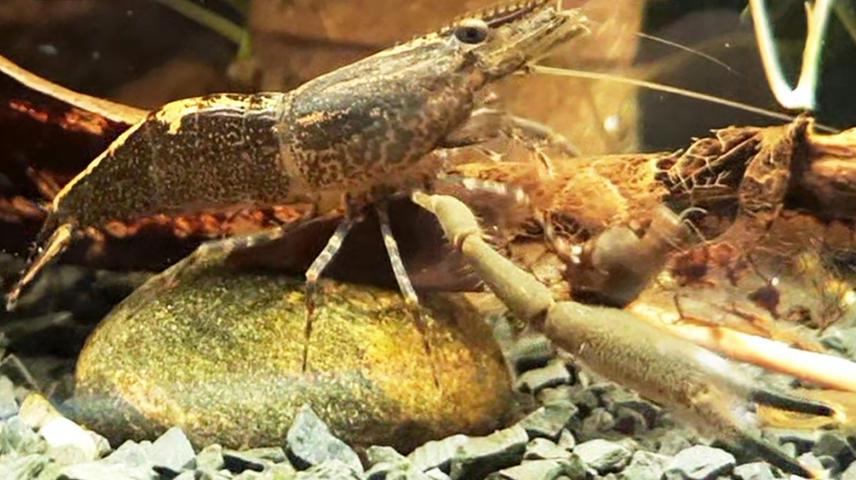Kunjulakshmi Kozhikkaparambil
Among the most threatened biodiversity hotspots in the world, Western Ghats biogeographic region covers a total area of 136,800 km2 (CEPF 2007). The freshwater biodiversity within the Western Ghats is home to world’s most unique fauna and flora and of immense importance to livelihoods and economies. This region exhibits remarkable diversity in endemic species (69%) due to strict aquatic habitat requirements. Two of the most important decapods that occur in the Western Ghats are freshwater Caridean shrimps of families Atyidae and Palaemonidae. They are generalist ‘macro-consumers’, facilitating macro-decomposition by scavenging and shredding debris and leaf litter. They play multiple ecological roles which have significant impacts on ecosystem functioning, making them an important component in the ecosystem.

Macrobrachium irwini
Globally, only 28% of freshwater shrimps are assessed for their extinction risk. Most of them are Data Deficient and underestimated due to a lack of biodiversity and taxonomic research on these groups, particularly from India. In this context, the present study investigates the status of exploitation of freshwater ornamental shrimps of the Central Western Ghats (Karnataka region, primarily). Because the exploitation of freshwater shrimps of the family Atyidae and Palaemonidae for the ornamental trade is more concentrated in this region in terms of demand and supply. The exact number of species that are currently available in the trade is not known due to the disorganised, multifaceted and fragmented supply system. Such continuous exploitation of Data Deficient species may cause population decline and ecological imbalance, given a lack of laws to protect freshwater shrimps harvested for the ornamental trade. Finally, to ensure long-term sustainability of these freshwater shrimps, as well as the livelihoods dependent upon them, we will create management strategies and conservation plans to protect them.
Header: Habitats of freshwater shrimps, Central Western Ghats, India.